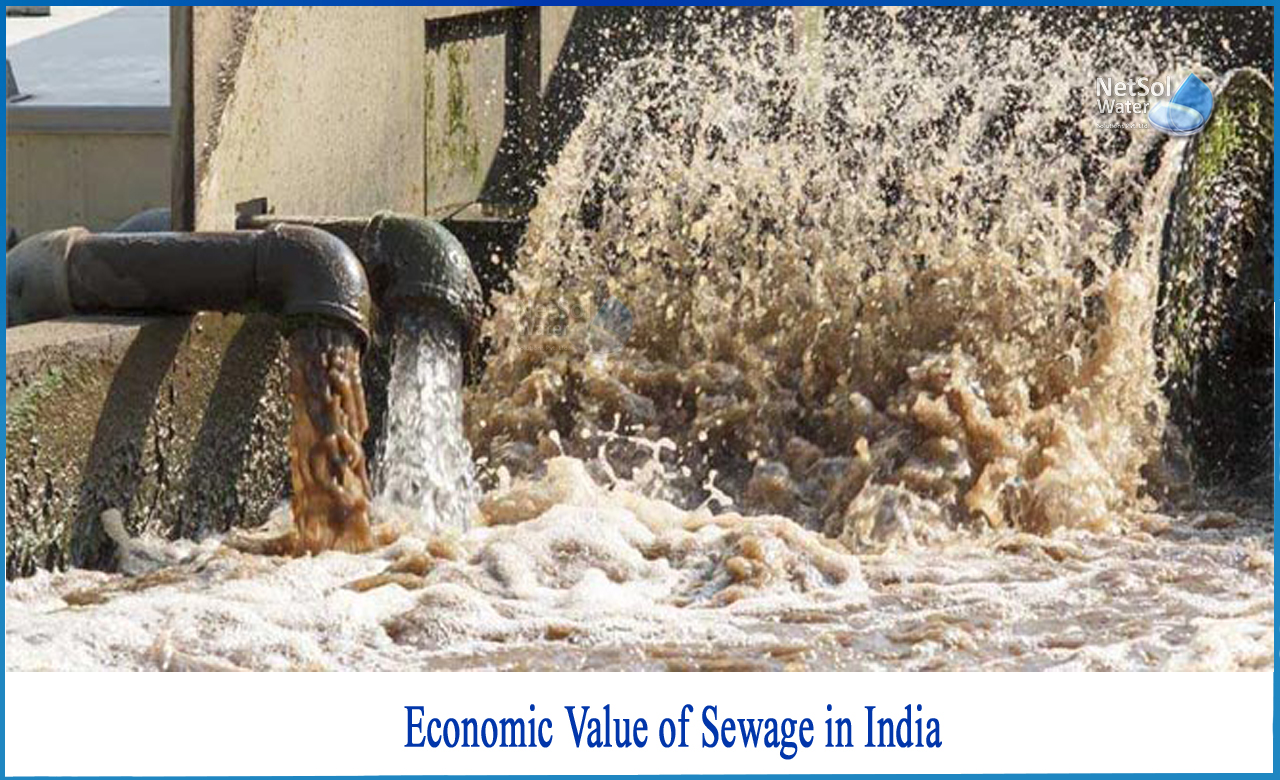What is the economic use of sewage?
Increased pollutant loads from developing cities, unsustainable industrialization and food production techniques, better living standards, and inefficient water and wastewater management systems, are all contributing to a global water quality catastrophe.
In an urbanizing world, wastewater is both a benefit and a concern. Untreated wastewater is a significant source of pollution, as well as a threat to human health and ecological services. The costs of polluting water bodies can be significant: according to the Millennium Ecosystem Assessment report, the cost of deterioration of ecosystem services in coastal waters is mostly connected with human health implications.
The realization factor!
The realization that wastewater is a significant economic resource capable of producing water, fertilizers, energy, and other important materials and services has fueled efforts to improve water quality and promote proper wastewater management. Globally, 330 km3 of municipal wastewater is created each year. The resources in this wastewater could theoretically irrigate and fertilize millions of hectares of crops, as well as create biogas to power millions of homes.
Despite the potential advantages of treatment and reuse, however, wastewater management is often viewed as an expense. The diversity of wastewater kinds and sources at the municipal level, as well as a lack of infrastructure to aggregate wastewater flows from many locations to a single common site of effective treatment, are typical challenges. As a result, only a tiny percentage of wastewater gets treated, and the amount that can be properly reused is much lower.
Getting policymakers and managers in national and local governments to adopt policies is difficult for multilateral development banks, bilateral funders, and other development organizations!
Both developed and developing countries must make investments in wastewater management. Treatment and reuse of wastewater provides major environmental, social, and health advantages. However, since there is no baseline or control, or because the market does not decide these values, the value of these advantages is frequently not quantified. Nonetheless, valuing these advantages is required to justify appropriate expenditures and finance methods for long-term wastewater management.
The Economic case for Wastewater Treatment
Modern wastewater treatment facilities (WWTPs) are capital-intensive and necessitate the use of cutting-edge technology including sensors, Internet of Things (IoT) devices, and AI-based trackers. The large upfront capital needs for machinery and equipment, along with the unpredictability of revenue streams, makes this a high-risk sector that discourages private sector participation.
Countries that have successfully turned wastewater treatment into an economic opportunity have done so by utilizing the public-private partnership (PPP) model, according to global experience. Governments give financial support to WWTPs, lessening investment risk, while private sector enterprises provide technical skills in addition to capital investment in this scenario. As a result, PPPs are more cost-effective than Government-run initiatives.
The Indian Experience with Public-Private Partnerships in Wastewater
According to World Bank estimates, there were 1,025 PPP projects in the industry between 2007 and 2020, encompassing integrated municipal solid waste, water treatment, and disposal, totaling US$81.6 billion in investment. Only 65 PPPs came from India, with a total investment of US$2.8 billion, or about 3.4 percent of worldwide spending.
Several obstacles prevent India's private sector from forming wastewater PPPs-
Investment risks: Private players are discouraged from entering the industry due to high capital expenses. Furthermore, enterprises must wait three to eight years just to break even. When private enterprises have minimal fixed capital costs, i.e. when projects are sponsored by Government initiatives, PPPs have traditionally proven effective in India.
Demand risks: Risks associated with demand water rates are low, and there is minimal legislation limiting user fees, making it difficult to collect wastewater fees to pay expenditures. The revenue from dried sludge seldom covers the cost of utilities, and businesses experience considerable demands unpredictability. This problem is exacerbated by the fact that freshwater and treated wastewater are not charged differently.
Payment risk: Risks of payment PPPs are discouraged by Government agencies' delayed or complete non-payment of legally guaranteed annuities, particularly with financially weaker water boards and in non-metro areas.
Municipal sewage quality and amount: The lack of raw/secondary-treated sewage has a negative impact on operating efficiency and profitability. Due to ill-designed municipal systems, sewage adulteration with industrial effluents affects treatment functions, resulting in costly and needless repairs.
Conclusion
To avoid a day-zero situation in major Indian cities, Governments and municipal authorities, as well as the business sector and individuals, must work together urgently and diligently. The COVID-19 pandemic has shown the vulnerabilities of present economic paths, which must now be built on a more ecologically sustainable base.
1: Wastewater recycling might be a win-win situation for all parties concerned.
2: PPPs may be used to build CETP and STP infrastructure and bridge funding shortages provided the public sector provides a clear regulatory framework, tariff system, and risk mitigation measures.
3: To maximize the cyclic use of precious freshwater, a market for cleaned water can be formed.
4: The cost of water as an input for some consumer groups, such as agricultural or industrial users, can be decreased under a differentiated tariff regime, and freshwater conservation can be encouraged.
Netsol Water provide the ideal platform for implementing these measures and achieving the goal of 100% (Water+ cities). Netsol is one of the leading water and wastewater treatment company in India offering projects and services in the field of water and wastewater treatment plant manufacturing and supplying machines like compact sewage treatment plants which not only turns your waste water into usable water but also acts as a saviour of Mother earth and its precious resource “water”.
Netsol Water is Greater Noida-based leading water & wastewater treatment plant manufacturer. We are industry's most demanding company based on client review and work quality. We are known as best commercial RO plant manufacturers, industrial RO plant manufacturer, sewage treatment plant manufacturer, Water Softener Plant Manufacturers and effluent treatment plant manufacturers. Apart from this 24x7 customer support is our USP. Call on +91-9650608473, or write us at enquiry@netsolwater.com for any support, inquiry or product-purchase related query.



